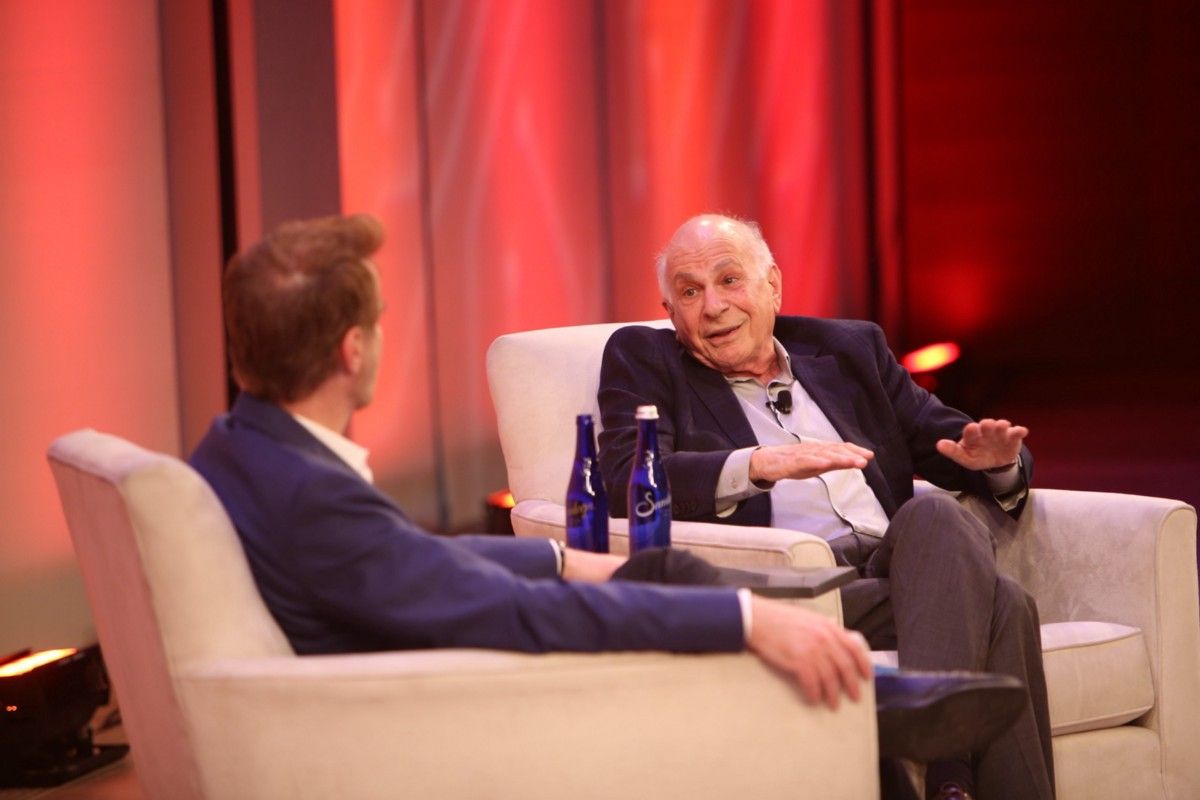Professor Daniel Kahneman was awarded a Nobel Prize for his work on the psychology of judgment and decision-making, as well as behavioral economics. In this age of human/machine collaboration and shared learning, IDE Director, Erik Brynjolfsson, asked Kahneman about the perils, as well as the potential, of machine-based decision-making. The conversation took place at a recent conference, The Future of Work: Capital Markets, Digital Assets, and the Disruption of Labor, in New York City. Some key highlights follow.
P rofessor Daniel Kahneman was awarded a Nobel Prize for his work on the psychology of judgment and decision-making, as well as behavioral economics. In this age of human/machine collaboration and shared learning, IDE Director, Erik Brynjolfsson, asked Kahneman about the perils, as well as the potential, of machine-based decision-making. The conversation took place at a recent conference, The Future of Work: Capital Markets, Digital Assets, and the Disruption of Labor, in New York City. Some key highlights follow.
Erik Brynjolfsson: We heard today about algorithmic bias and about human biases. You are one of the world’s experts on human biases, and you’re writing a new book on the topic. What are the bigger risks — human or the algorithmic biases?
Daniel Kahneman: It’s pretty obvious that it would be human biases, because you can trace and analyze algorithms.
